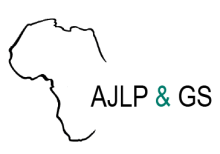Land Library Search
Through our robust search engine, you can search for any item of the over 73,000 highly curated resources in the Land Library.
If you would like to find an overview of what is possible, feel free to peruse the Search Guide.
/ library resources
Showing items 1 through 9 of 253.The Mekong Region has experienced rapid agrarian change over the past two decades, driven by public sector policies promoting agricultural commercialisation to alleviate rural poverty, provide income opportunities, and modernize agricultural production systems.
In Africa, particularly in Senegal, the issue of gender in land governance remains an equation when it comes to access to land.
Given the length of the conflict and multiplicity of actors embedded in the Colombian war, it becomes necessary to understand the impact that violence, displacement and dispossession have amongst rural producers and in the agroeconomic sector in general.
While international trade in agricultural commodities can spur economic development especially where governance is strong, there are also concerns about the local impacts of commodity production and their distribution on the environment and on people.
Aquatic food systems make significant contributions to sustainable development through generating employment; providing community and household food and nutrition security; and strengthening family well-being, socioeconomic growth, poverty alleviation, climate resilience and environmental sustain
Agriculture is key to economic growth and poverty reduction in Kenya as it plays a pivotal role in employment creation, food security, exports, and sustainable development.
The 2010s were a decade of strong economic development in Kenya. Gross domestic product (GDP)—an indicator of the economy’s size—expanded by an average of 5 percent per year (KNBS 2022).
This book has adopted a food systems framework as a new way of conceptualizing and designing food policies and research.
It is critical to have land policies that facilitate access to and effective control of land and other natural resources to achieve inclusive growth and eradicate poverty.



